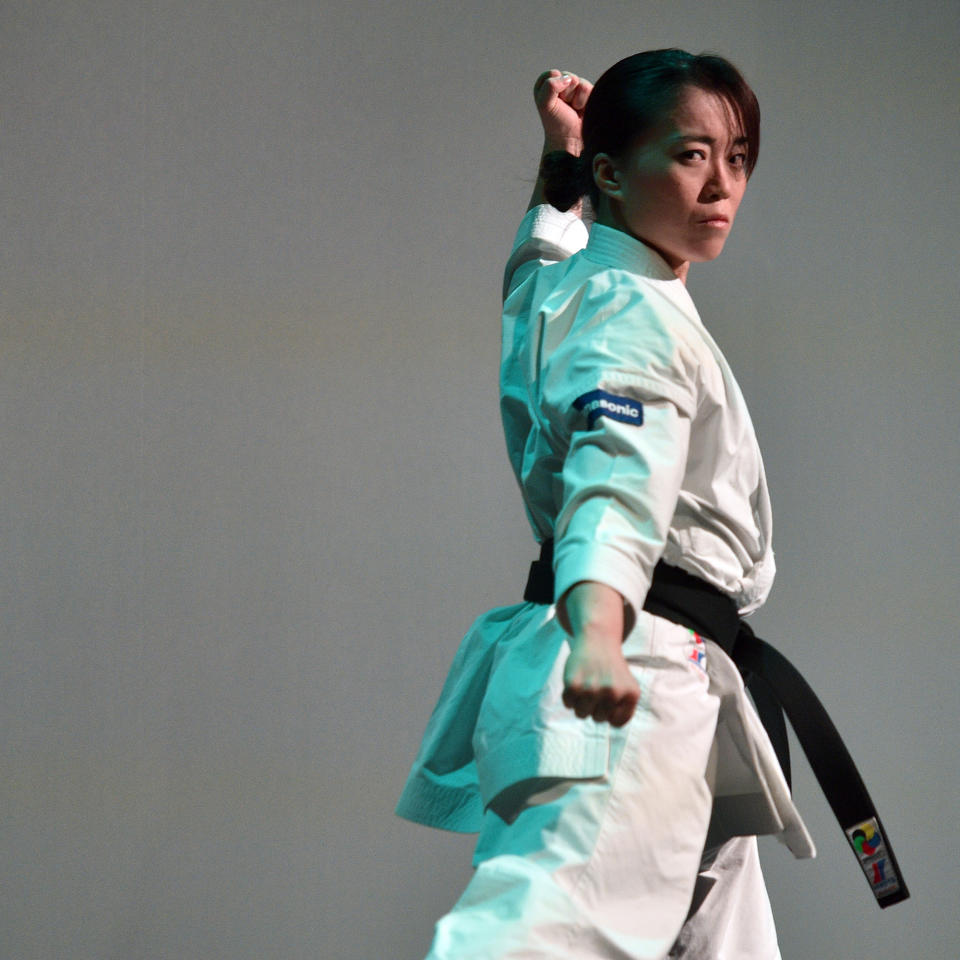Team USA Olympian shares how anti-Asian verbal attack served as motivation
- Oops!Something went wrong.Please try again later.
Olympic athlete Sakura Kokumai was the victim of a verbal assault in early April but as she prepares to compete in the Tokyo Olympics, she says the hurtful words spewed in her direction are serving as motivation.
Kokumai, who is Japanese American, was training at a park in Orange County, California, when a man began yelling at her and using racial slurs like “Chinese disgusting.”
“A man just started to yell at me, at the end some racial slurs,” she recently recounted to NBC affiliate KNBC. “I really thought it was important to just speak out.”
She partially captured the incident on video, showing a man who yelled at her and called her a loser.
"Go home. Stupid b----," he says, in part. "I'll f--- you up."
In the interview with KNBC which aired on Friday, Kokumai, 28, added that the incident strengthened her resolve and sense of purpose going into the Olympic games.
“It made me even more proud to represent the U.S. and being a Japanese American representing karate has given me huge pride in myself,” she told the outlet.
At the time of the incident, she wrote on her Instagram that she normally preferred to keep her social media positive but that “issues needs to be addressed so we can protect each other.”
“Yes what happened was horrible, but I don’t know which was worse, a stranger yelling and threatening to hurt me for no reason or people around me who witnessed everything and not doing a thing,” she said, adding that several people walked by and didn’t do anything. “This could have happened to anyone, if it wasn’t me, someone could’ve gotten hurt.”
“We need to take care of each other. Why is it so hard to treat people with respect... yes, everyone is fighting inner battles but have RESPECT. REACH OUT. BE KIND. ITS NOT THAT HARD.”
Kokumai added that she was “angry, frustrated, confused, scared, by the situation but also “heartbroken to see and experience how people could be so cold.”
“Please take care of each other,” she concluded. “Please look out for one another.”

Following the onset of the coronavirus pandemic, a string of anti-Asian attacks were reported across the country. In May, The reporting forum Stop AAPI Hate released a report that found the number of incidents reported surged from 3,795 to 6,603 in March of this year alone. Verbal harassment made up the vast majority of reports, at 65%.
An analysis from the Center for the Study of Hate and Extremism at California State University, San Bernardino revealed that while such crimes in 2020 decreased overall by 7%, those targeting Asian people increased by nearly 150%.
Kokumai isn’t the only Asian American Olympian opening up about experiencing anti-Asian hate. Gymnast Yul Moldauer, who was born in South Korea and adopted by American parents, told NBC News a woman yelled “Go back to China” at him while stopped at a red light.
Moldauer, 24, said his dedication to his sport is what makes him feel American.
"I feel like me going into the gym seven hours a day is one of the most American things to do is to grind your heart out every single day to get an opportunity to wear U.S.A. on your chest," he said.
In an interview with NBC News at the time of the verbal attack, Kokumai said she wanted everyone in the Asian American Pacific Islander community to know “that you’re not alone.”
“I think it’s really important to have compassion, share love and to look out for one another,” she said. “It makes me emotional just to think about it because at the time I did feel like I was all alone. But with all the messages that I received, it made me feel like I do belong here.”

